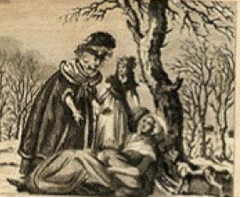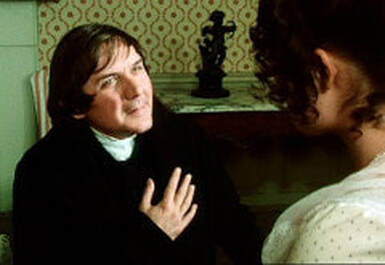The family biographers and the gravestone also emphasize Austen's Christian faith. Henry, who became a clergyman himself, wrote that “her opinions accorded strictly with those of our Established Church."
Dr. Helena Kelly, however, knows better. In Jane Austen: The Secret Radical, she writes: "What we can say, with confidence, is that [Austen]'s opinion didn't really accord anything like as strictly 'with those of our Established Church,' as Henry claims." For one thing, Austen is "scornful" of the clergy. She wrote satirical and critical portraits of clergymen. (Kelly includes Edward Ferrars and Edmund Bertram along with Mr. Collins and Mr. Elton in her list of bad clergymen.)
Do Austen's writings shed light on whether she held non-conformist religious beliefs? Let's see...
| Clutching My Pearls is my ongoing blog series about my take on Jane Austen’s beliefs and ideas, as based on her novels. When I say "my take," I very much doubt that I could find anything new or different to say about Austen, not after her admirers have written so much. But I am not trying to be new, rather I am pushing back at post-modern portrayals of Austen as a radical feminist. Click here for the first in the series. |






 RSS Feed
RSS Feed